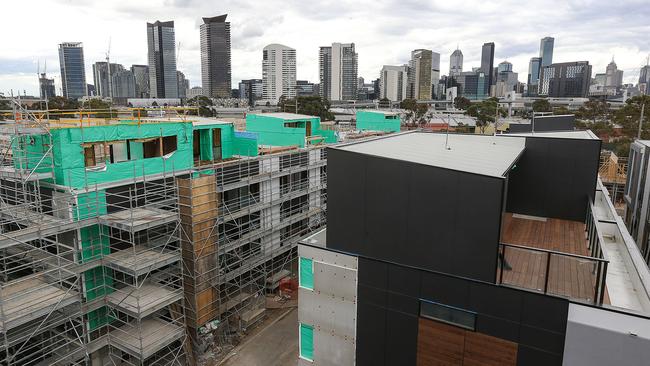
And the values may also become linked to the looming global tangle between China and the US which will include trade, the South China Sea and Taiwan.
The Chinese citizens sending money to Australia are scared that China’s banks and/or the currency will collapse so go to incredible lengths to get money out of China and into “safe havens” like Australian and Canadian real estate.
But the Chinese money exit clamps are becoming more successful and we have seen a big fall in Chinese demand for Sydney apartments. Fortunately for those wanting real estate prices to hold or rise in Sydney the Chinese have been replaced by an equally big rise in negative gearing by Australians who have been frightened off superannuation by the crazy government games.
The Canadians don’t have the cushion of politicians who actively promote negative gearing so they follow China’s money clamps more closely than Australia.
Canada’s real estate blog Better Dwelling describes how China has now made its money exodus clamps stronger and introduced new rules for exchanging yuan for international currency that require disclosure of the intended use of the yuan being converted. In addition, the Chinese must pledge that the money won’t be used for the purchase of property, securities, or insurance products.
Borrowing or lending on behalf of others is prohibited, and now requires a legal declaration saying this is not happening. Anyone caught breaking the rules will be denied the conversion, and lose exchange rights for two years. They can also be subject to an anti-money laundering investigation, which could see them in jail.
But, of course, as we know China has an extensive underground banking system which has developed all sorts of illegal ways of getting money out of the country. China is trying to shut them down but the underground banks keep bobbing up, especially as Chinese do not have the administrative ability to check all the applications, so making the official system hopeless. It should be emphasised that China still allows major long term strategic investment in food, minerals and other big investment plays.
Along with lower interest rates, the Chinese money exodus has caused a big rise in global real estate values and a substantial fall in China’s foreign exchange reserves.
We now have a situation where current global real estate values in many segments of the market partly hang on the underground banking system in China.
But the mass exodus of money from China has depressed the Chinese currency and assisted the country’s export drive. President-elect Donald Trump believes that American manufacturers are disadvantaged and promised to take action by putting tariffs on Chinese goods.
While we might speculate that the latest clamps on the money exodus are linked to the new US administration, that is highly unlikely.
What is far more likely is that China fears that the exodus will tighten domestic liquidity and force them to increase the regular injections they must make to prop up their dodgy banks.
By all ordinary tests China has a string of banks that should fail because they have extensive bad loans. The government is determined not to allow banks to collapse but fears that task would be made much more difficult or even impossible without controls on amounts leaving the country.
So far the underground banking system has kept up a flow, albeit reduced, but if the Chinese government shut it down then we would almost certainly see a rise in the yuan, which would make Chinese exporters less competitive but would please Donald Trump.
During 2017 the new US administration will have talks with China over trade, the South China Sea and Taiwan.
Australians need to understand that large parts of our real estate market are in the middle of that game.




Few Australians buying houses and apartments in Melbourne and Sydney realise that the value of their properties partly depends on the success of China’s attempt to prop up its dodgy banks.